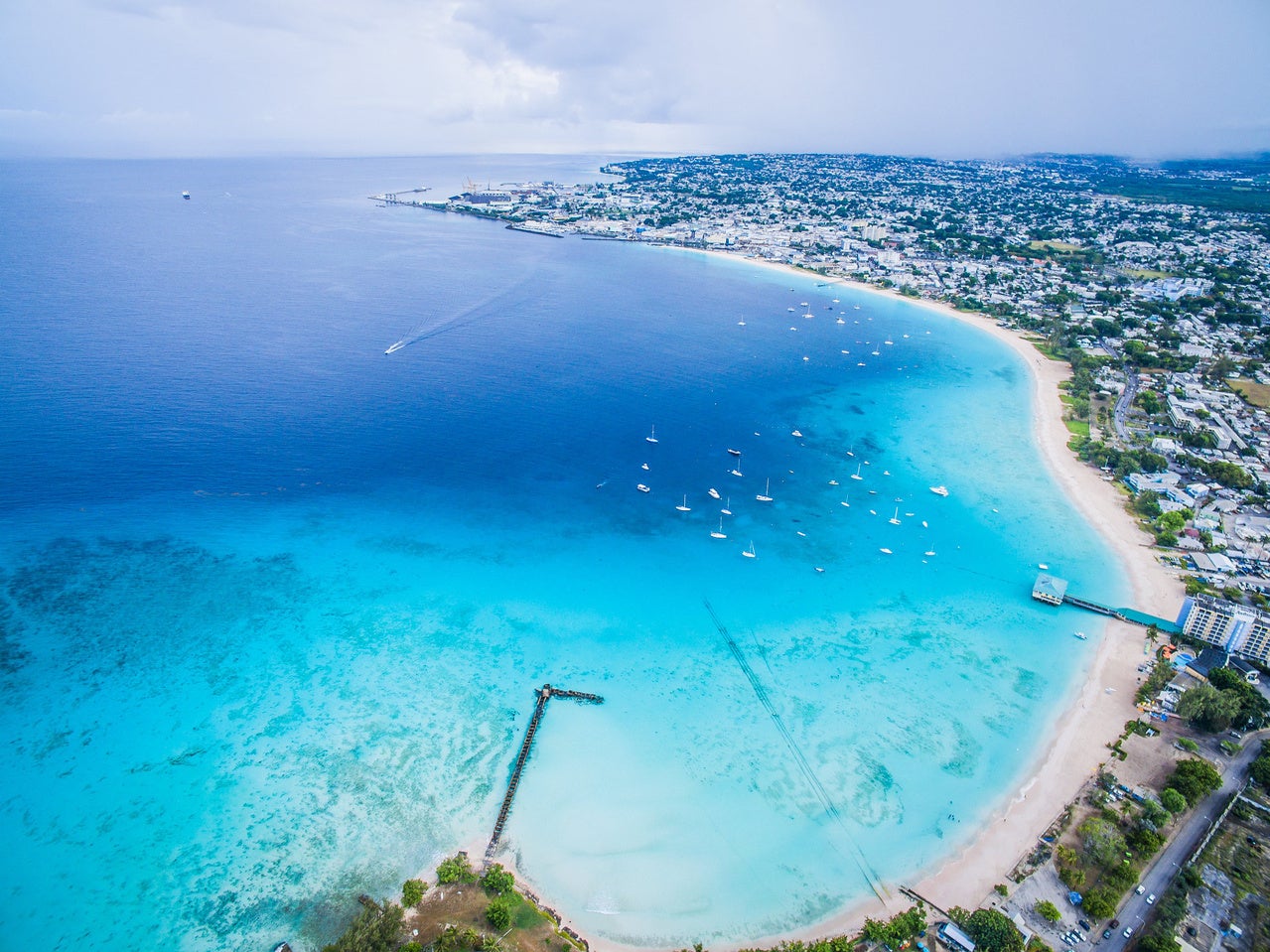A recent New York Times article declared, “Caribbean nations are trapped between the global financial system and a looming climate disaster. One country’s leader has been fighting to find a way out.”
That country is Barbados, and the leader is Mia Motley, Prime Minister and climate innovator extraordinaire.
As a small island developing state (SIDS), Barbados faces significant structural challenges: a small geographic size and population, limited access to financial markets, connectivity constraints, and, like all SIDS, dramatically increased vulnerability to the growing impacts from climate change. Nonetheless, the country recently took an important step towards solving financial challenges, with the help of Inter-American Development Bank (IDB), while bolstering its biodiversity and climate commitments.
Both operations were funded through a dual currency US$146,518,800-equivalent term loan facility, or blue loan, that benefits from a guarantee of US$100 million from the IDB and a TNC guarantee of US$50 million. It is important to underline that the IDB guarantee made this transaction more efficient, by providing more savings in relation to the amount exchanged, proving that Multilateral Development Banks’ involvement is crucial to foster this type of operation.
Based on this success the IDB will continue to support similar initiatives in the region given their replicability potential.
Additionally, this was the very first time that a country introduced both hurricane and pandemic clauses in its international debt contracts, which is not only a G7 recommendation but a necessary measure for countries to automatically get relief if such events occur. This move sets a precedent for other countries to follow as well and illustrates the importance of sound sustainable debt management practices.
The transaction will translate into US$50 million in savings, which the Government of Barbados has committed to fully allocate to the newly created Barbados Environmental and Sustainability Fund (BESF). The BESF is now operational as an independent non-profit institution and has begun the work to fulfill its commitment to:
- provide funding for environmental conservation and sustainability actions to NGOs, community-based organizations, governmental agencies, and the private sector via a competitive and transparent grant program;
- support the Government and its agencies in the development and execution of a five-year Marine Spatial Planning (MSP) process to advance climate resilience, nature-based solutions, and marine conservation across all Barbados ocean territory; and,
- foster opportunities to secure blended finance, non-grant instruments, and a vibrant blue economy that attracts additional international resources and ensures the long-term financial sustainability of the Fund.
The climate-financing deal consolidates Barbados’ commitments as stated in its Nationally Determined Contribution (NDC), as well as its National Biodiversity Strategies and Action Plan (NBSAP), which includes placing at least 17% of terrestrial and inland water and 10% of coastal and marine areas under protection by 2030.
One major value-added dimension, and a key ingredient for success in these types of operations, is the synergy established between the ministries of Finance and Environment. Mainstreaming climate and biodiversity considerations into the Ministry of Finance’s agenda is crucial. The government’s main financial decisionmakers are now embracing the opportunities created by instruments such as thematic bonds and carbon markets. The demonstrated benefits from valuing natural capital and ecosystem services are bringing these often disparate government agencies into closer working relationships. This will only accelerate and strengthen efforts to stave off biodiversity loss and climate change impacts.
Another key ingredient for success is to have a country-led process that encompasses an open and transparent participation of academia, non-governmental organizations, and other civil society actors. This collaborative effort will garner the essential data to guide effective decision-making processes to ensure the successful implementation of practical, relevant, and socially appropriate actions. Only Barbados knows what its needs and capacities are today and what steps it must prioritize to move forward.
The blue-bond transaction is just the beginning of what needs to be a sustained effort for countries to attain the targets agreed under national and international conservation commitments. In Barbados’ case, it will produce the MSP, which then becomes the cornerstone to set a science-based approach to establish Marine Protected Areas (MPAs) under International Union for Conservation of Nature (ICUN) standards.
The IDB’s role in this transaction was integral and catalytic to its success. Its US$100M guarantee, supported by a AAA rating, enables Barbados to significantly reduce the cost to secure financing for sustainability and marine conservation measures. It also helped to mobilize an additional US$50M guarantee from The Nature Conservancy, a reputed NGO with important experience in debt for nature conversions. In addition, the guarantee was under the IDB policy-based guarantee instrument, which helps the country to strengthen its efforts to improve environmental governance and debt management.
The IDB is pursuing similar transactions with other countries based on the unique and successful Barbados model. Demand for this type of transaction is sure to increase. Debt-for-nature and sustainability operations are increasingly being recognized as ways for multilateral development banks to support climate resilience efficiently and effectively. It also nurtures a strong “blue-green” economic recovery by mobilizing the private and social sector under a fiscally sustainable framework.
With this innovative debt-for-nature conversion, Barbados is ensuring that the targets set under NDCs and NBSAPs are not just lofty goals in a shelved document. Instead, the conversion ensures that these words are matched with actions and concrete financial commitments. The Barbados ministries of Finance and Environment must remain closely engaged in this agenda to reap the desired long-term benefits. The IDB will further support this engagement through an additional US$600,000 in technical cooperation funds to ensure the ministries have the technical capacity and policy framework to make this first-of-its-kind operation live up to expectations. As Barbados continues to become a global model using finance to respond to climate challenges, the IDB remains in its corner as a critical and essential ally.


Leave a Reply